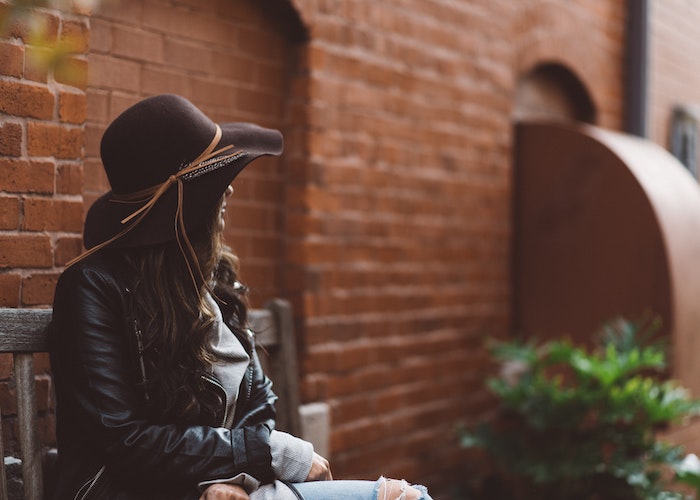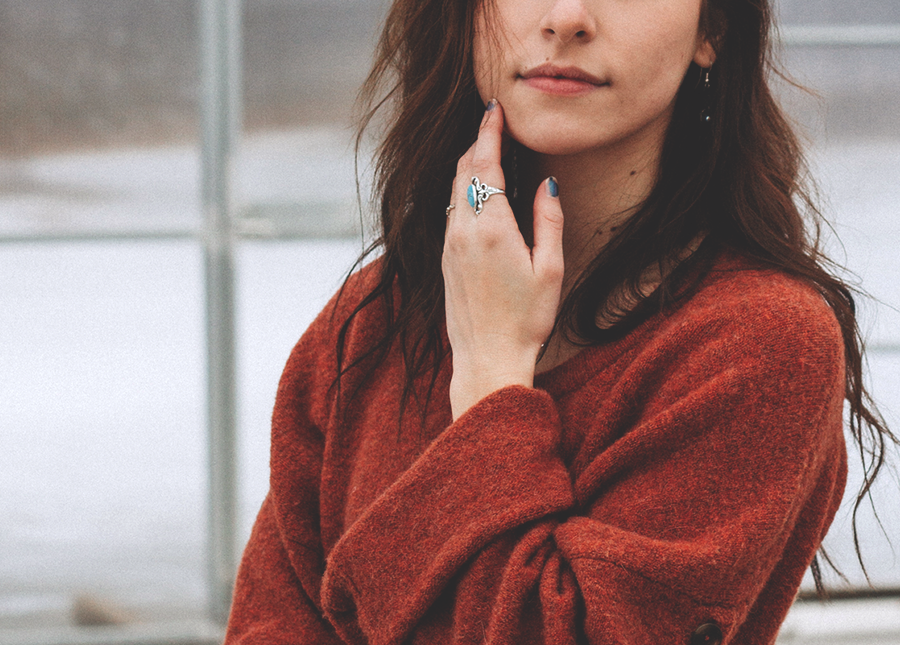3 Major Things I Learned From Being Sober During COVID

Note: This article discusses substance abuse. It describes my personal journey with alcohol but is in no way meant to diagnose or treat any medical condition. If you’re concerned about your substance use, please consult the help of a professional.
A new year often brings a new perspective on many things, including a person’s relationship to alcohol. With resolutions being made, many will feel called to pause, reflect, and maybe even try a Dry January or Dry February challenge.
This year, January symbolized my two-year sober anniversary from alcohol. And over the course of those two years, there are plenty of hard lessons I’ve had to learn while abstaining from liquor, especially having been sober during one of the arguably most traumatic years of our time.
Here are just a few:
1. You don’t realize how much money alcohol really costs until you fully cut it out.
I don’t know about you, but when I used to drink, alcohol always felt like a “necessary” expense; it was a part of my normal life. On the weekends, it was just something I spent money on, and I didn’t really question why.
This also coincided with a lack of budgeting skills at the time, but alcohol was just something I always made room for. Even if I was dead broke, I’d make room for some beer on special at the campus pub or an extremely cheap bottle of whiskey.
It felt completely normal and rational to me, especially when I was in university. I thought it was just a line in my (non-existent) budget that was non-negotiable.
When I look at my sobriety tracking app (I Am Sober) today, I can see that I’ve saved $3,680 CAD (or approx. $2,885 USD) in the span of two years, by quitting drinking. That’s an average of $153 CAD / $120 USD, a month. That number seems baffling now, but at the time, $5 here or $20 there didn’t feel like much to spend for a “good time.” And those seemingly insignificant dollar amounts seriously added up.
Looking back now, the amount of money I spent on alcohol was money I wasted. It was money I spent while desperately trying to have fun, fit in, and run away from my problems. But drinking didn’t fix any of those problems. In many ways, it just made them worse.
2. Fun social events don’t require alcohol, no matter how conditioned we are to believe otherwise.
As I’ve touched on in this article, one of the biggest changes when I quit drinking was having to learn how to socialize again.
Alcohol is deeply embedded in our culture. Whether it’s the mimosas at brunch, the drinks with colleagues at happy hour after work, or the glasses of champagne shared for big celebrations, alcohol is deeply interwoven with our notion of socializing.
There’s nothing wrong with partaking in any of those social activities; it’s just not something I do anymore. So, I’ve learned to adapt.
Coffee dates have really been the sweet spot for me, especially in early sobriety. Grabbing coffee or tea with a friend has proven to be a low-key way of hanging out and catch up, minus the pressure of drinking (at least before social distancing measures were put into place!)
One of my friends is still in university doing graduate work, so (in pre-COVID days), we also used to meet up a lot for study dates. We’d go to the library or a coffee shop and just get some work done together; she’d do coursework, and I’d write some freelance articles. That was another low-stakes social situation, because we got to chat and catch up a little bit, but also have an accountability buddy there to get work done with.
After I got more comfortable in my sobriety, I was able to go to places like bars again. Whether alone or with friends, I was able to confidently go in and order a mocktail without hesitation. Sure, I felt a bit silly, but it was something I could do without too much discomfort. I also found that many bars are willing to make you some awesome custom mocktails. Just ask if the bartender has any special alcohol-free drinks they like making, and you’d be surprised at how delicious some of them are!
And at holidays or birthday celebrations, my family also knows I’m sober and they support me (which I’m very grateful for). They’ll even go out of their way to pick me up a bottle of non-alcoholic wine for big dinners.
All of this is to say that I never thought I’d be able to have a social life without alcohol. It felt like a requirement. Now I realize that it’s optional.
3. The people you think are your closest friends might not even be real friends at all.
This was probably the most shocking part of quitting drinking. I quit drinking as a way to stop sabotaging my mental and physical wellbeing because I wasn’t consuming alcohol in a way that felt healthy for me. But what I didn’t expect was to have my entire concept of friendship completely shattered.
When I quit drinking, I started having to engage in sober social engagements; think lots of coffee dates, study dates, and grabbing dinner without drinks. In many ways, I felt like I was re-learning how to socialize and relate to people again. One thing that truly shook me was that, when I was sober, I found that I didn’t have much in common with certain friends. In some situations, I realized: I don’t think I even like spending time with this person when I’m not drunk. It doesn’t mean that those old friends were bad people; it just meant that we didn’t have much to relate to anymore, and quite possibly, ever.
As a very introverted (and socially-anxious) person, my social circle has always remained small. But after quitting drinking, it got even smaller. I ended friendships — some that I thought would be life-long.
On the plus side, I now feel closer than ever to those I’m still friends with. Because I know that, even without the added element of liquor, we can relate to each other and still have a good time. I appreciate and cherish my close friends on an even deeper level, which has been an unexpected but pleasant surprise.
***
I’m not here to tell you to get sober, and I’m not here to tell you to eliminate your spending on alcohol. This is just my story. Thanks to my friends, family members, and mental health supports, I’ve been able to make the right choice for me. Especially amidst the turmoil of the pandemic, I’ve never been more grateful for the clarity of sobriety. And looking toward the future, I’m happy to see one without alcohol.
Mercedes Killeen is a Toronto-based freelance writer and editor. You can learn more about her work, and order her freelance services, at mercedeskilleen.com.
Images via Unsplash

